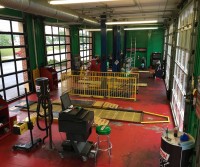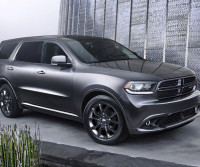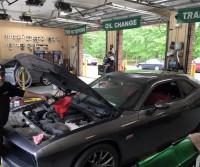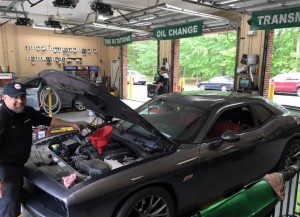
A vehicle tune-up is an important part of your car servicing. Besides your regular oil changes, performing routine maintenance can help extend the life of your vehicle. It can also help reduce the cost of future repairs.
You can check your vehicle’s owner’s manual to find out the recommended tune-up schedule for you. Newer vehicles can go from 25,000 miles to as many as 100,000 miles without needing a major tune-up.
Does My Car Need a Tune-Up?
Being proactive with your vehicle can help fix a minor problem before something major happens. A tune-up makes sure your vehicle functions properly and helps prevent future damage.
If you haven’t had a tune-up in a while, becoming familiar with common warning signs can save your time and frustration. Consider these common indicators that something wrong might be going on under the hood of your vehicle.
Vibrations or shaking
Noticing a shaking sensation in your steering wheel while you’re starting your vehicle, steering, or braking? This could be a sign of a number of different issues; from bad brakes and routers to your power steering. These types of problems are best to get it checked out by the professionals!
Rough shifting
Your vehicle’s automatic transmission handles how your vehicle’s gears-shift. Is your vehicle’s transmissions shifting hard, jerking, or shaking during a shift change? If it is, your vehicle’s transmission fluid may need to be changed or the fluid level may be too low.
Stalling
There are three primary causes of your vehicle stalling: .1 lack of fuel, 2. not receiving enough air or, 3. insufficient power. These can be caused by dirty or fouled spark plugs, water in the fuel, a faulty fuel pump, a bad ignition coil, or a bad sensor. Regardless of what is causing your car to stall, the best way to avoid high repair costs is to get your vehicle checked as early as possible.
Check Engine Light
This is usually a strong indicator that something is not working properly. When check engine light illuminates your dash, your vehicle’s computer stores a “trouble code” in its memory that identifies the source of the problem. When your check engine light comes on, it’s important to bring your vehicle to a professional so that your vehicle can be hooked up and diagnosed by reading warning code from your vehicle’s computer.
Is your car ready for a tune-up, or is your vehicle showing signs of a problem? Did you know that all six of your local Fast Lube Plus location can help you diagnose what is happening under the hood of your vehicle? Stop by today!

Down the road when that new car smell fades away and it doesn’t quite drive like it used to, you’ll want to know the extent of your auto warranty coverage. Knowing what parts, tune-ups and repairs will be covered — and for how long — will give you a complete picture of how to minimize your costs and what kind of insurance you’ll need in the long run. Here’s what you need to know to save you money and get the best service for your car when you need it.
Auto warranty 101
An auto warranty is a promise made by a manufacturer or dealer to cover repairs and defects over the course of a certain amount of time and certain amount of mileage. Most basic warranties are guaranteed for at least three years or 36,000 miles, but may vary according to the manufacturer.
Warranties are essential a legally binding pledge to fix or replace any parts that have broken down or are inherently faulty, including defective parts. Warranties do not cover regular maintenance and will not cover breakdowns caused by accidents, acts of nature, lack of proper maintenance, contamination of fluids or fuels, collision, fire, theft, negligence or abuse.
There’s a basic checklist of questions all consumers should have answered before purchasing a car warranty, according to the Federal Trade Commission, including length of the warranty, the point of contact for service, what parts and repair problems are covered, as well as any conditions or limitations on the warranty.
What’s covered?
Different levels of warranty coverage exist, so it’s important to understand the limits and umbrella of coverage before purchasing. These are the most typical types of warranty your car dealer will offer:
Basic “bumper-to-bumper” warranty: This is the most general coverage that pays to repair defects in factory-installed parts.
Drivetrain/Powertrain warranty: Covers the engine, transmission and transaxle parts. This warranty tends to last longer than bumper-to-bumper.
Roadside assistance: Covers towing costs and tire changing if the car breaks down during travel.
Rust or corrosion warranty: Covers rust in sheet metal parts of the car.
Federal emission warranty: Covers repairs needed to correct defects in parts that would cause the car not to meet Environmental Protection Agency standards.
How drivers can maintain their warranty
Regular car maintenance and inspections are necessary to guarantee that a warranty won’t be voided. Typically, routine maintenance includes oil changes, tire rotations, fluid checks and flushes, brake pads, belt replacement, etc. A warranty will remain valid no matter who performs the repairs, meaning you can use your own mechanic or shop — not just the dealer’s service department.
What does auto insurance do that car warranties don’t?
Under car warranties, the manufacturer makes a guarantee to the car buyer regarding the condition of its product. In case car parts do not function as intended, a warranty will cover the costs to repair or replace the part, as well as car rentals due to repairs, and potentially corrosion/rust.
Insurance, on the other hand, is an obligation on the part of the insurer to take on financial protection or reimbursement for the risks that are inherent with driving. Every state in the U.S. except for New Hampshire requires drivers to purchase some level of auto insurance to cover accidents, collisions, car rentals and possibly roadside assistance.
Service contracts or “extended warranties”
When a warranty runs out, car owners may choose to purchase a service contract to provide repairs or maintenance. Vehicle manufacturers, auto dealers and independent providers sell the contract separately from a warranty.
Service contracts will not provide benefits until after the initial warranty expires. Rates for these contracts depend on the life of the car — those with fewer miles and past repairs will get a better deal.
These contracts, while often referred to as “extended warranties,” are not actually warranties. Drivers who are interested in purchasing a service contract should practice due diligence to find the most trustworthy source, particularly from third-party companies.
However, since service contracts are optional and car warranties end, it’s most critical for car owners to purchase insurance that will be the most affordable, provide adequate coverage and be the best fit for their specific car.
Best and worst warranties on the market
There are three vehicle brands that standout for providing the best in basic and power train warranties: Hyundai, Mitsubishi and Kia. Each brand offers five years or 60,000 miles new vehicle limited warranties, and 10 years or 100,000 miles powertrain warranties.
Brands like BMW and Cadillac offer four years or 50,000 miles basic warranties and five years or 100,000 miles powertrain warranties. Other big brands such as Chrysler, Chevrolet and GMC all offer three years or 36,000 miles new vehicle limited warranty, and five years or 100,000 miles powertrain limited warranty
The most standard warranties on the market are offered by Honda, Nissan, Toyota, Ford, Mazda and Subaru with three years or 36,000 miles new vehicle limited warranty, and 5 years or 60,000 miles powertrain limited warranty.

Regardless of its brand or age, every car needs regular tune-ups. Their behind-the-scenes nature means some drivers don’t see their value, but investing in preventative measures and routine checkups can save you future headaches! Here’s what goes into an average tune-up.
General Tune-up Procedures
Tune-ups can vary depending on the car and who is performing the tune-up. Generally, a tune-up consists of checking the engine for parts that need cleaning, fixing, or replacing. Common areas under inspection include filters, spark plugs, belts and hoses, car fluids, rotors, and distributor caps. Many of these only require a visual inspection or a simple test.
While some of these checks can be done at home, having professionals give your car a comprehensive tune-up guarantees that the engine is fully examined.
At Fast Lube Plus, tune-ups can also include analyzing exhaust emissions, adjusting ignition timing and idle speed control, and a thorough maintenance inspection.
Filters and Spark Plugs
Though tune-ups come in a variety of flavors, they almost always include your filters and spark plugs.
Fuel filters, oil filters, PCV valves (which help ventilate the engine), and air filters all help keep your engine clean. The filters catch contamination. Over time, clogs can develop as unclean fluids, air, dust, and other impurities get caught in the filters. If unchecked, dirty filters can lead to higher oil pressure, fuel pump failure, and many other expensive and annoying problems.
Spark plugs are the tiny electrodes that handle the “combustion” part of an internal combustion engine. They are subject to wear over time, as the metal is constantly under high pressure and temperatures. Rough idling and hard starts are often due to worn spark plugs. Their accompanying wires, rotors, and distributor caps can also wear out, and a good tune-up includes their inspection.
 When to Get a Tune-up
When to Get a Tune-up
Though tune-ups are important, most cars don’t require them as often as they require other maintenance jobs, like oil changes. If you have a car from the 1970s or earlier, you probably should get a tune-up every 10,000 miles. Most newer cars should be checked every 30,000 – 50,000 miles or so, despite some manufacturers recommending a 100,000 mile interval.
Routine tune-ups are crucial to maintaining your engine’s performance and longevity. Next time you visit Fast Lube Plus, ask one of our experienced technicians about our tune-up services.
